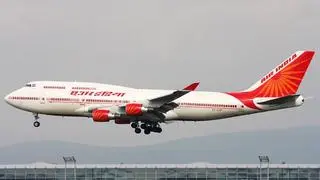
SpiceJet declared its third-quarter results last week and surprised the market with a net profit of ₹23.3 crore standalone compared with a loss of ₹57 crore same period last year. While the management claimed that it was more because of higher passenger traffic and profitable cargo business, it also owes its better performance equally to a higher other income. The auditors were quick to point out in their note that the company inflated its other income as the airline recognised claim recoverable on account of various costs incurred due to the grounding of Boeing 737 MAX to the tune of ₹1,555 crore on a cumulative basis till September 2021 end. This was because the management was confident about the “recoverability of its claims since the grounding of these aircraft.” The airline had 13 Boeing 737 MAX aircraft in its fleet before the worldwide grounding of these aircraft during March 2019. The airline received a rap on its knuckles from its auditors for spreading the ₹1,555 crore across several quarters, thereby reducing losses over a period of time. “During the quarter ended December 2021, the Company concluded its settlement agreement with the aircraft manufacturer and 737 MAX aircraft lessors, whereby the Company is entitled to particular cash and non-cash accommodations over a period of time including waiver of past lease rentals on these Boeing aircraft, resulting in re-induction of 11 of these aircraft into its fleet. Accordingly, on the basis of the various accommodations agreed upon with the aircraft manufacturer and 737 MAX aircraft lessors, the airline has recognised these amounts under the head ‘other income’. Therefore, in the auditors’ assessment, the company should have identified such agreements in their entirety during the quarter ended December 31, 2021 on completion of settlement. Critics might attribute the profits to financial jugglery but what was heartening to note for the airline was that there was strong growth in passenger business with the highest domestic load factor to 82.5 per cent, which resulted in a 98 per cent increase in passenger revenue quarter on quarter. Also, its freighter and logistics services revenues have grown 17 per cent to ₹584 crore, while net profit was ₹66.73 crore. However, SpiceJet has several air pockets to navigate before it can land safely. The first one is, of course, its inability to convince the former owners, the Marans, to accept ₹600 crore in cash to settle the share-transfer dispute. The Marans have claimed that it won’t settle for anything less, unless the airline pays up what it claims is ₹920 crore as total dues. The dispute has drained the airline’s time and resources and the relative uncertainty of such issues. Moreover, there is a significant interest component in the total dues that the airlines owe to the Marans, and it will keep growing until the dispute gets resolved. What remains to be seen is how long will the Marans wait as SpiceJet isn’t exactly in the pink of health as its accumulated losses have grown to ₹5,453 crore (as per the independent auditor’s report), thanks to adverse foreign exchange rates, fuel prices, pricing pressures and the impact of Covid.
There are enough indications that the crude price will anytime touch $100. Moreover, further escalation in geopolitical tensions between Russia and Ukraine could send the crude price even higher than $100 a barrel. According to an industry veteran, it would be prudent on the part of the Marans to accept the offer from SpiceJet. “They should take the money and settle the case as early as possible.” But the Marans seem to be in no hurry to do so. But where does SpiceJet go from here? Because of the considerable market share it enjoys, IndiGo will always be leagues ahead of any domestic airline. Hence, it will be left to SpiceJet to contend with new competition from the Tata Sons’ portfolio of airlines and the newer airlines, especially Akasa Air, which is well funded and its leadership team comprising highly experienced professionals.
What the airline needs apart from a leg up from the passenger traffic is an immediate infusion of cash which would allow management to reward employees with better compensation especially when the domestic airline sector is set to witness some fierce competition from newer and existing airlines for trained manpower. It also needs money to pay back vendors and settle dues if certain court cases go against the airline. But, of course, raising cash may not be that easy for airlines in the current conditions.






Comments
Comments have to be in English, and in full sentences. They cannot be abusive or personal. Please abide by our community guidelines for posting your comments.
We have migrated to a new commenting platform. If you are already a registered user of TheHindu Businessline and logged in, you may continue to engage with our articles. If you do not have an account please register and login to post comments. Users can access their older comments by logging into their accounts on Vuukle.